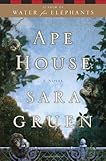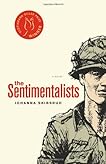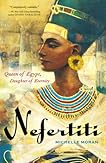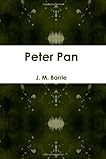
Yann Martel takes his reader on a potent journey into the world of evil. His novel is totally unconventional, separated in two parts, one an essay the other a fairy-tale, both trying to commemorate the victims of the Holocaust and the effect on its survivors and the perpetrators.
The main character Henry , a novelist, likes to use animals with human characteristics to tell his stories. But when he attempts to write about the Holocaust in that fashion, Henry hits a wall, publishers slam the door on him. About to give up his career in writing, Henry receives a manuscript of a strange play, written by a taxidermist also named Henry. The play is about a pair of suffering animals, a donkey and a monkey named Beatrice and Virgil and it is staged using a giant striped shirt as background. The dialogue between the two animals reflects their feelings and the horrors they have suffered under the Nazi regime.
Luckily this is a short novel, less than 200 pages. It tends to bog down with indefinite details around the two Henrys and the fine art of taxidermy, creating too many rambling, disjointed and boring moments. The author appears to have used his background in philosophy to relate his story through the eyes of two charming and articulate animals. I found it took till the end for the story to jell and for me to piece together what the author wanted to convey.
The last pages consist of moral fables posing as questions about how one would react when faced with life changing decisions….
I found this novel to have been too profound for my taste….
The main character Henry , a novelist, likes to use animals with human characteristics to tell his stories. But when he attempts to write about the Holocaust in that fashion, Henry hits a wall, publishers slam the door on him. About to give up his career in writing, Henry receives a manuscript of a strange play, written by a taxidermist also named Henry. The play is about a pair of suffering animals, a donkey and a monkey named Beatrice and Virgil and it is staged using a giant striped shirt as background. The dialogue between the two animals reflects their feelings and the horrors they have suffered under the Nazi regime.
Luckily this is a short novel, less than 200 pages. It tends to bog down with indefinite details around the two Henrys and the fine art of taxidermy, creating too many rambling, disjointed and boring moments. The author appears to have used his background in philosophy to relate his story through the eyes of two charming and articulate animals. I found it took till the end for the story to jell and for me to piece together what the author wanted to convey.
The last pages consist of moral fables posing as questions about how one would react when faced with life changing decisions….
I found this novel to have been too profound for my taste….


















No comments:
Post a Comment